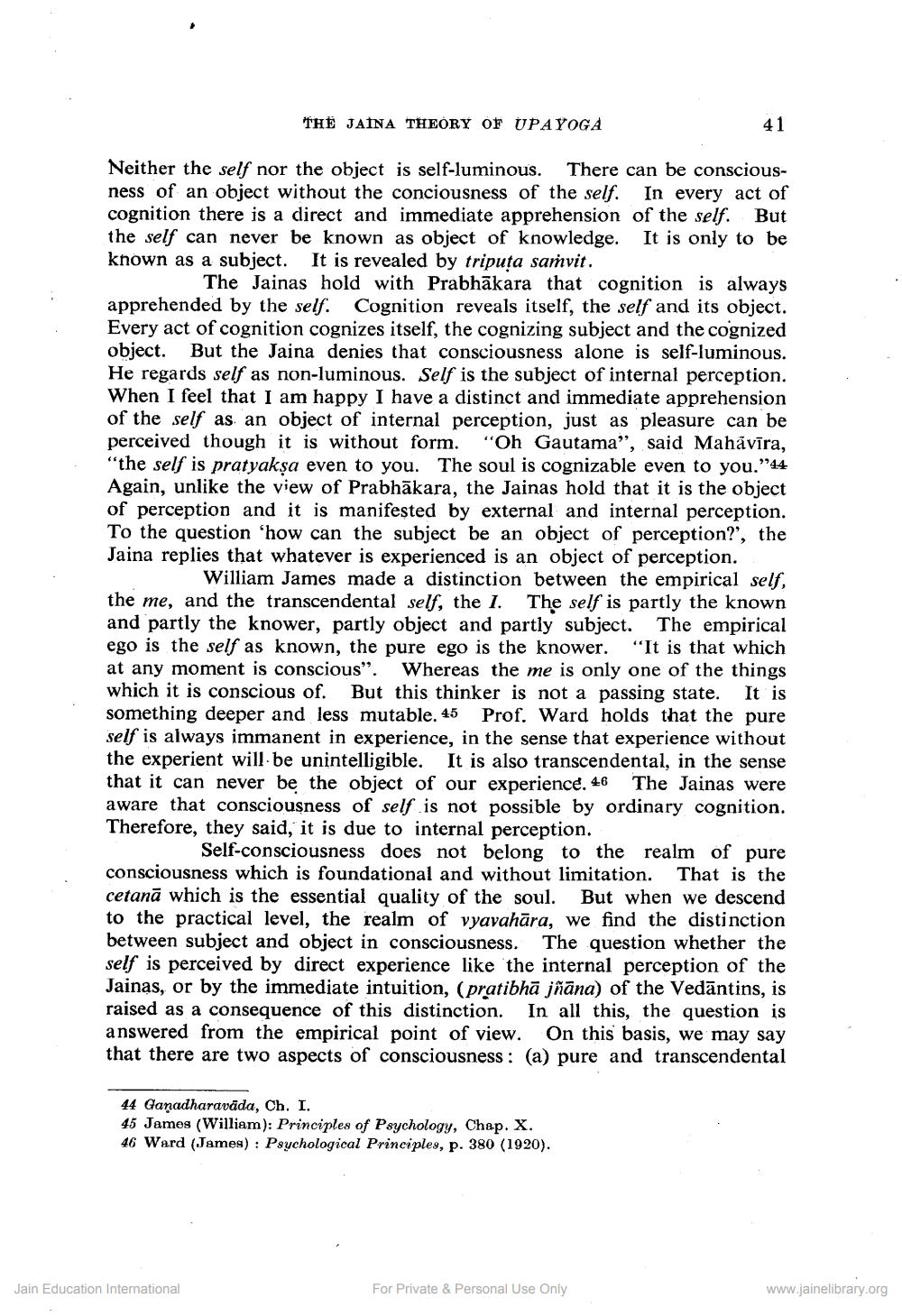________________
THE JAINA THEORY OF UPAYOGA
41
Neither the self nor the object is self-luminous. There can be consciousness of an object without the conciousness of the self. In every act of cognition there is a direct and immediate apprehension of the self. But the self can never be known as object of knowledge. It is only to be known as a subject. It is revealed by triputa saṁvit.
The Jainas hold with Prabhākara that cognition is always apprehended by the self. Cognition reveals itself, the self and its object. Every act of cognition cognizes itself, the cognizing subject and the cognized object. But the Jaina denies that consciousness alone is self-luminous. He regards self as non-luminous. Self is the subject of internal perception. When I feel that I am happy I have a distinct and immediate apprehension of the self as an object of internal perception, just as pleasure can be perceived though it is without form. "Oh Gautama”, said Mahāvīra, "the self is pratyaksa even to you. The soul is cognizable even to you."44 Again, unlike the view of Prabhākara, the Jainas hold that it is the object of perception and it is manifested by external and internal perception. To the question 'how can the subject be an object of perception?', the Jaina replies that whatever is experienced is an object of perception.
William James made a distinction between the empirical self, the me, and the transcendental self, the 1. The self is partly the known and partly the knower, partly object and partly subject. The empirical ego is the self as known, the pure ego is the knower. "It is that which at any moment is conscious". Whereas the me is only one of the things which it is conscious of. But this thinker is not a passing state. It is something deeper and less mutable. 45 Prof. Ward holds that the pure self is always immanent in experience, in the sense that experience without the experient will be unintelligible. It is also transcendental, in the sense that it can never be the object of our experience. 46 The Jainas were aware that consciousness of self is not possible by ordinary cognition. Therefore, they said, it is due to internal perception.
Self-consciousness does not belong to the realm of pure consciousness which is foundational and without limitation. That is the cetanā which is the essential quality of the soul. But when we descend to the practical level, the realm of vyavahāra, we find the distinction between subject and object in consciousness. The question whether the self is perceived by direct experience like the internal perception of the Jainas, or by the immediate intuition, (pratibhā jñāna) of the Vedāntins, is raised as a consequence of this distinction. In all this, the question is answered from the empirical point of view. On this basis, we may say that there are two aspects of consciousness : (a) pure and transcendental
44 Ganadharavāda, Ch. I. 45 James (William): Principles of Psychology, Chap. X. 46 Ward (James): Psychological Principles, p. 380 (1920).
Jain Education International
For Private & Personal Use Only
www.jainelibrary.org




